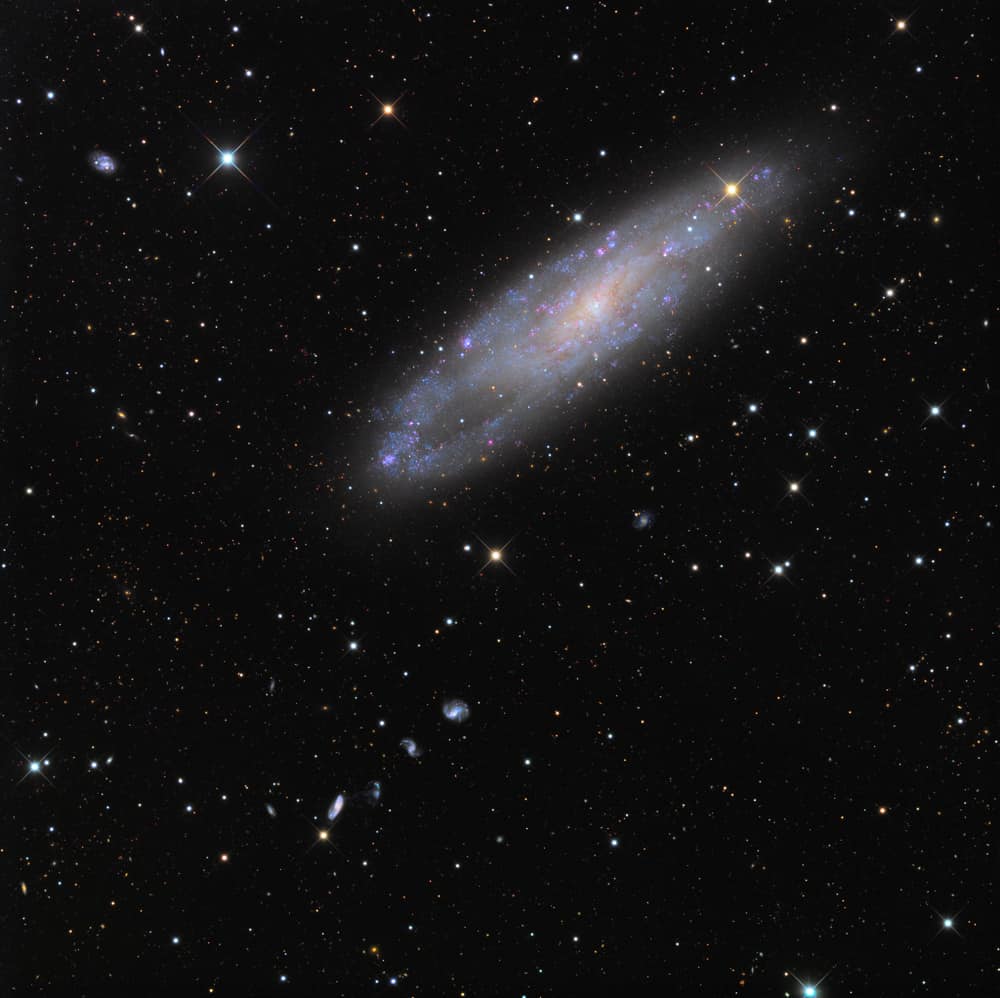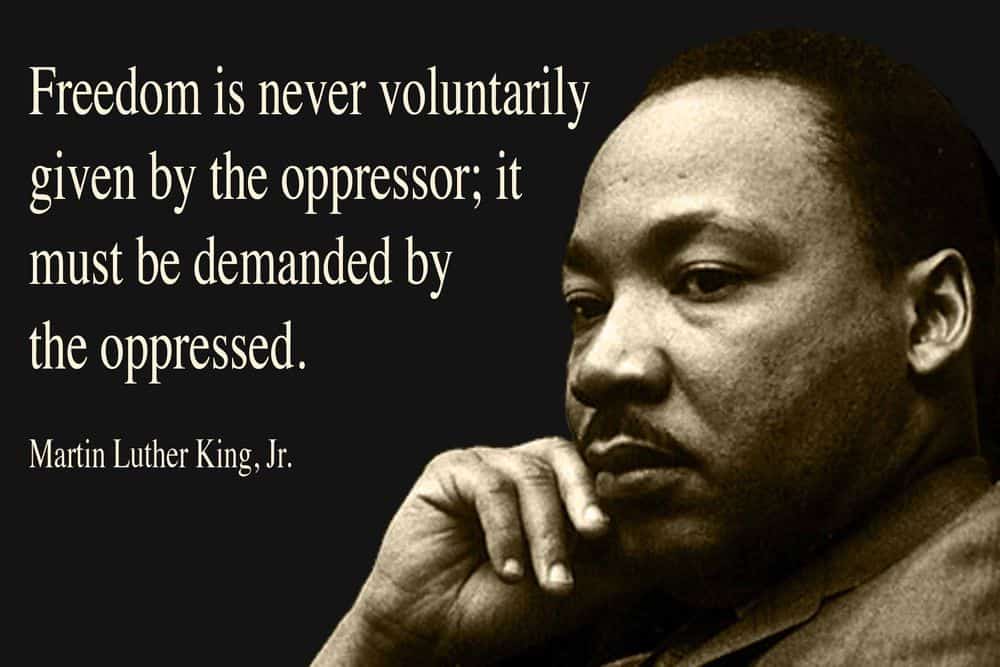Blog
Huddie William Ledbetter (/ˈhjuːdi/; January 20, 1888 – December 6, 1949), better known by the stage name Lead Belly, was an American folkand blues singer, musician and songwriter notable for his strong vocals, virtuosity on the twelve-string guitar, and the folk standards he introduced, including his renditions of “Goodnight, Irene“, “Midnight Special“, “Cotton Fields“, and “Boll Weevil“.
Lead Belly usually played a twelve-string guitar, but he also played the piano, mandolin, harmonica, violin, and windjammer. In some of his recordings, he sang while clapping his hands or stomping his foot.
Lead Belly’s songs covered a wide range of genres and topics including gospel music; blues about women, liquor, prison life, and racism; and folk songs about cowboys, prison, work, sailors, cattle herding, and dancing. He also wrote songs about people in the news, such as Franklin D. Roosevelt, Adolf Hitler, Jean Harlow, Jack Johnson, the Scottsboro Boys and Howard Hughes. Lead Belly was posthumously inducted into the Rock and Roll Hall of Fame in 1988 and the Louisiana Music Hall of Fame in 2008.
Though many releases credit him as “Leadbelly”, he himself wrote it as “Lead Belly”, which is also the spelling on his tombstone and the spelling used by the Lead Belly Foundation.
Lead Belly pronounced his first name /ˈhjuːdi/ (HYOO-dee, as if spelled “Hudie”). He can be heard pronouncing his name this way on one of his recordings of “Boll Weevil”.The younger of two children, Lead Belly was born Huddie William Ledbetter to Sallie Brown and Wesley Ledbetter on a plantation near Mooringsport, Louisiana, on January 20, 1888. His parents had cohabited for several years, but they legally married on February 26, 1888. When Huddie was five years old, the family settled in Bowie County, Texas. The 1900 United States Census lists “Hudy Ledbetter” as 12 years old, born January 1888, and the 1910 and 1930 censuses also give his age as corresponding to a birth in 1888. The 1940 census lists his age as 51, with information supplied by wife Martha. However, in April 1942, when Ledbetter filled out his World War II draft registration card, he gave his birth date as January 23, 1889, and his birthplace as Freeport, Louisiana(“Shreveport”). His grave marker bears the date given on his draft registration.
more...https://www.youtube.com/watch?v=lw2f235y7k0
more...Mardi Gras 2020 only 36 days until Fat Tuesday. Celebrate with the
BEAU KOO JACKS
at Neumanns Bar in North St Paul 7-11pm
Fat Tuesday February 25th 2020
with Guest artists
Torrion Amie and Jesse Mueller with Jamie Carter, Todd Matheson, Paul Strickland, Larry McCabe, Art Haynes and mick Bamboula laBriola.
more...

X-rays from the radio galaxy 3C31 (blue), located 240 million light years from Earth, allow astronomers to probe the density, temperature, and pressure of this galaxy, long known to be a powerful emitter of radio waves. The Chandra data also reveal a jet blasting away from one side of the central galaxy, which also is known as NGC 383. Here, the Chandra X-ray image has been combined with Hubble’s visible light data (yellow).

Robert Allen Palmer (19 January 1949 – 26 September 2003) was an English singer-songwriter, musician, and record producer. He was known for his distinctive, soulful voice, sartorial elegance and for combining soul, jazz, rock, pop, reggae, and blues.
Palmer’s involvement in the music industry began in the 1960s, covered four decades and included a spell with the band Vinegar Joe. He found success both in his solo career and with the Power Station, and had Top 10 songs in both the United Kingdom and the United States in the 1980s. Three of his hit singles, “I Didn’t Mean to Turn You On,” “Addicted to Love,” and “Simply Irresistible”, were accompanied with stylish music videos directed by British fashion photographer Terence Donovan. Palmer received a number of awards throughout his career, including two Grammy Awards for Best Male Rock Vocal Performance, an MTV Video Music Award, and two Brit Award nominations for Best British Male Solo Artist.
Palmer died aged 54 following a heart attack on 26 September 2003.
Palmer’s father was a British naval intelligence officer stationed in Malta. In 1949, Palmer moved with his family from Batley, where he was born, to Scarborough. Influenced as a child by blues, soul and jazz music on American Forces Radio, Robert Palmer joined his first band, The Mandrakes, at the age of 15 whilst still at Scarborough High School for Boys. His first major break came with the departure of singer Jess Roden from the band The Alan Bown Set in 1969, after which Palmer was invited to London to sing on their single “Gypsy Girl”.
more...Janis Lyn Joplin (January 19, 1943 – October 4, 1970) was an American singer-songwriter who sang rock, soul and blues music. One of the most successful and widely known rock stars of her era, she was known for her powerful mezzo-soprano vocals and “electric” stage presence.
In 1967, Joplin rose to fame following an appearance at Monterey Pop Festival, where she was the lead singer of the then little-known San Francisco psychedelic rock band Big Brother and the Holding Company. After releasing two albums with the band, she left Big Brother to continue as a solo artist with her own backing groups, first the Kozmic Blues Band and then the Full Tilt Boogie Band. She appeared at the Woodstock festival and the Festival Express train tour. Five singles by Joplin reached the Billboard Hot 100, including a cover of the Kris Kristofferson song “Me and Bobby McGee“, which reached number 1 in March 1971. Her most popular songs include her cover versions of “Piece of My Heart“, “Cry Baby“, “Down on Me“, “Ball and Chain“, and “Summertime“; and her original song “Mercedes Benz“, her final recording.
Joplin died of a heroin overdose in 1970 at the age of 27, after releasing three albums. A fourth album, Pearl, was released in January 1971, just over three months after her death. It reached number one on the Billboard charts. She was posthumously inducted into the Rock and Roll Hall of Fame in 1995. Rolling Stone ranked Joplin number 46 on its 2004 list of the 100 Greatest Artists of All Time and number 28 on its 2008 list of 100 Greatest Singers of All Time. She remains one of the top-selling musicians in the United States, with Recording Industry Association of America certifications of 15.5 million albums sold. Janis Lyn Joplin was born in Port Arthur, Texas, on January 19, 1943, to Dorothy Bonita East (1913–1998), a registrar at a business college, and her husband, Seth Ward Joplin (1910–1987), an engineer at Texaco. She had two younger siblings, Michael and Laura. The family belonged to the Churches of Christ denomination.
more...Horace Parlan (January 19, 1931 – February 23, 2017) was an American hard bop and post-bop pianist and composer. He was known for his contributions to the Charles Mingus recordings Mingus Ah Um and Blues & Roots.
In his birth year, Parlan was stricken with polio, resulting in the partial crippling of his right hand. The handicap contributed to his development of a particularly “pungent” left-hand chord voicing style, while comping with highly rhythmic phrases with the right. Between 1952 and 1957, he worked in Washington DC with Sonny Stitt, then spent two years with Mingus’ Jazz Workshop. In 1973, Parlan moved to Copenhagen, Denmark. He later settled in the small village of Rude in southern Zealand. In 1974 he completed a State Department tour of Africa with Hal Singer. His later work, such as a series of duos with the tenor saxophonist Archie Shepp included the album Goin’ Home, steeped in gospel music.
Parlan received the 2000 Ben Webster Prize awarded by the Ben Webster Foundation.
more...Willie Lee “Big Eyes” Smith (January 19, 1936 – September 16, 2011) was a Grammy Award-winning American electric blues vocalist, harmonica player, and drummer. He was best known for several stints with the Muddy Waters band beginning in the early 1960s.
Born in Helena, Arkansas, Smith learned to play harmonica at age seventeen after moving to Chicago. Smith’s influences included listening to 78’s and the KFFA King Biscuit radio show, some of which were broadcast from Helena’s Miller Theater, where he saw guitar player Joe Willie Wilkins, and harmonica player Sonny Boy Williamson II. On a Chicago visit in 1953 his mother took him to hear Muddy Waters at the Zanzibar club, where Henry Strong’s harp playing inspired him to learn that instrument. In 1956, at the age of eighteen he formed a trio. He led the band on harp, Bobby Lee Burns played guitar and Clifton James was the drummer. As “Little Willie” Smith he played in the Rocket Four, led by blues guitarist Arthur “Big Boy” Spires, and made recordings that were later reissued on the Delmark label. In 1955 Smith played harmonica on Bo Diddley‘s recording of the Willie Dixonsong “Diddy Wah Diddy” for the Checker label. Drummers were in more demand than harp players so Smith switched to drums and starting playing with Muddy Waters band. Smith recorded with Muddy on the 1960 album Muddy Waters Sings Big Bill Broonzy, a tribute to Big Bill Broonzy.
more...About 70,000 light-years across, NGC 247 is a spiral galaxy smaller than our Milky Way. Measured to be only 11 million light-years distant it is nearby though. Tilted nearly edge-on as seen from our perspective, it dominates this telescopic field of view toward the southern constellation Cetus. The pronounced void on one side of the galaxy’s disk recalls for some its popular name, the Needle’s Eye galaxy. Many background galaxies are visible in this sharp galaxy portrait, including the remarkable string of four galaxies just below and left of NGC 247 known as Burbidge’s Chain. Burbidge’s Chain galaxies are about 300 million light-years distant. NGC 247 itself is part of the Sculptor Group of galaxies along with the shiny spiral NGC 253.

Steve Grossman (born January 18, 1951) is an American jazz fusion and hard bop saxophonist.
Born in New York City, Grossman was Wayne Shorter‘s replacement in Miles Davis‘ jazz-fusion band. Then, from 1971 to 1973, he was in Elvin Jones‘s band.
In the late 1970s, he was part of the Stone Alliance trio with Don Alias and Gene Perla. The group released four albums during this period, including one featuring Brazilian trumpeter Márcio Montarroyos. The albums also feature an array of other musicians. They went on to release three live reunion albums during the 2000s
more...Al Foster (born January 18, 1943) is an American jazz drummer. Foster played with Miles Davis during the 1970s and was one of the few people to have contact with Davis during his retirement from 1975–1981. Foster also played on Davis’s 1981 comeback album The Man with the Horn. He was the only musician to play in Davis’s band both before and after his retirement. He has toured extensively with Herbie Hancock, Sonny Rollins, and Joe Henderson.
Foster was born in Richmond, Virginia, and grew up in New York. He began playing drums at the age of 13 and made his recording debut on Blue Mitchell‘s The Thing to Do at age 20.
He joined Miles Davis‘s group when Jack DeJohnette left in 1972, and played with Davis until 1985. In his 1989 autobiography, Davis described the first time he heard Foster play live in 1972 at the Cellar Club in Manhattan: “He [Foster] knocked me out because he had such a groove and he would just lay it right in there. That was the kind of thing I was looking for. Al could set it up for everybody else to play-off and just keep the groove going forever.”
Foster began composing in the 1970s, and has toured with his own band, including musicians such as bassist Doug Weiss, saxophonist Dayna Stephens, and pianist Adam Birnbaum.
https://www.youtube.com/watch?v=_HZ5qXqEDoU
more...Vassilis Tsitsanis (Greek: Βασίλης Τσιτσάνης 18 January 1915 – 18 January 1984) was a Greek songwriter and bouzouki player. He became one of the leading Greek composers of his time and is widely regarded as one of the founders of modern Rebetiko and Laiko music. Tsitsanis wrote more than 500 songs and is still remembered as an extraordinary composer and bouzouki player.
Tsitsanis was born in Trikala. From a young age, Tsitsanis was interested in music and learned to play violin, mandola and mandolin which were mainstays of so many of his songs. In 1936, he left for Athens to study law, and by 1937 had also learned bouzouki and made his first musical recording.
In 1938, he moved to Thessaloniki, where he completed his military service, and stayed there for about ten years, during the German occupation of Greece. There he became famous, opened also an ouzeri, got married and wrote many of his best songs that were later recorded after the end of the War. By the shut-down of the record companies by the German occupation Forces in 1941, he had already recorded about 100 of his own songs and played on many recordings of other composers.
In 1946, Tsitsanis returned to Athens and began recording many of his own compositions that made famous many of the singers that worked with him, such as Sotiria Bellou (Σωτηρία Μπέλου), Marika Ninou (Μαρίκα Νίνου), Ioanna Georgakopoulou and Prodromos Tsaousakis. Tsitsanis developed the “westernization” of the rebetiko and made it more known to large sections of the population, setting also the bases for the future laiko. Vassilis Tsitsanis was a close friend with Andreas Papandreou, Prime Minister of the country. Tsitsanis died at the Royal Brompton Hospital in London following a lung operation, on his sixty-ninth birthday. He was mourned across Greece, where his music is still enjoyed to this day and he is regarded as a legend of rebetiko music.
more...Friday January 17th 2020 730pm Featuring Attorney General Keith Ellison and Rep. Frank Hornstein
more...
More Posts
- George Winston
- Happy Kwanzaa 2024
- Cosmos NGC 5643
- Glyn Johns
- Billy Bean
- John Scofield
- World Music Ensemble Chakâm feat Christine Zayed
- Daily Roots Keith Hudson
- Holiday Peace 2024
- Christmas Socialism
- Christmas Stress
- Merry Christmas~Happy Hanukkah 2024
- Cosmos NGC 2264
- Chris Kenner
- Oscar Moore
- Don Pullen
- Cab Calloway
- World Music Dave Brubeck
- Daily Roots The Cimarons
- Mohammed Rafi
